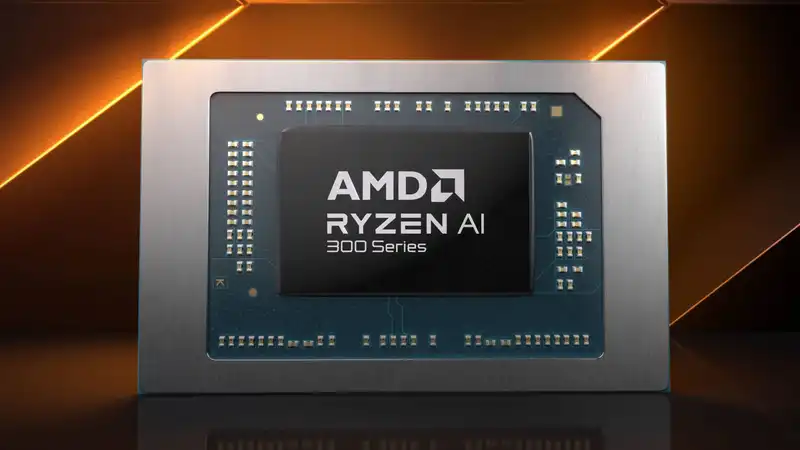Last month we reported on AMD's decision to drop Windows 10 support on its new laptop chips, and now the Ryzen AI series has been announced and its official specs page confirms this change: the Ryzen 9000 series fully supports Microsoft's older operating systems. support, whereas the Ryzen AI 300 series is Windows 11 and Linux only.
Our friends at Tom's Hardware discovered the updated specs page, and after looking over all the entries myself, I can confirm that the Ryzen AI 9 HX 370 and AI 9 365 do not have Windows 10 on their supported OS lists. the Ryzen 8000 series laptop chips and the new Ryzen 9000 series desktop processors still have Windows 10.
Windows 10 is not very old software, having first appeared only eight years ago in July 2015. Still, Microsoft will end official support in October 2025, but that's not why AMD decided to move on from this well-received OS. Of course, it all comes down to AI.
More specifically, it is thanks to Copilot+, which Microsoft is adding to Windows 11. While this suite of AI tools will initially only be available on Snapdragon X-based laptops (the Copilot+ AI PC ecosystem), eventually all major notebook vendors will be able to offer the They will switch to CPUs with NPUs (Neural Processing Units), such as AMD's Ryzen AI models and Intel's upcoming Lunar Lake chips.
Locally run AI algorithms require many specific mathematical operations, which can be performed by CPUs or GPUs, but chip engineers have developed a separate cluster of units to perform them with as little power as possible. the peak throughput of NPUs is called TOPs (trillions of operations per second), and this number is the latest battleground for AMD, Intel, and Qualcomm.
Nvidia is currently out of the fray, thumbing its nose at the low TOPs numbers of its current NPU offerings and pointing out that its GPUs are much more powerful. While this is certainly true, GPUs are not currently designed or capable of hitting TOPs around 50 while running at very low power consumption. [Even if you're not interested in Co-Pilot+, there are signs that neural processing units may help graphics cards consume less power in games.
In any case, Copilot+ will not be released for Windows 10, and since AI is currently the biggest buzz on consumer PCs (in case you haven't noticed...) ), AMD clearly does not see the value in proposing a Ryzen AI chip for Windows 10 users.
Of course, it should still work, as the entire processor is not unaware of instructions from that OS. However, it would not be possible to properly use that NPU within Windows 11 and Copilot+.
And also, since Recall is already built to run on a fairly basic Arm processor, and there are few NPUs to be found, it is possible that the coding community will find a way to use the Ryzen AI chip's neural circuitry in Windows 10 sufficient.


Comments